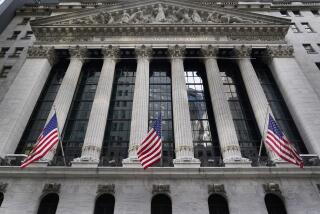Nervous Time in Tokyo : Amid a long slide and a new scandal, stock market plummets
- Share via
It was Black Monday, Japanese style. A big selloff on the Tokyo Stock Exchange on Monday sent Japan’s version of the Dow--the Nikkei index--plunging below the 20,000 mark to its lowest level in five years. The market recovered slightly Tuesday, but economic jitters persist in Tokyo.
The sharp drop-off in the Nikkei index is symptomatic of a Japan struggling to find its way in the post-Cold War world. Tokyo’s economic policies are being challenged as a stock scandal and other problems rock Prime Minister Kiichi Miyazawa’s government.
Tokyo finds itself in a predicament similar to that of the United States--paying for the excesses of the 1980s. The speculative real estate and stock booms have gone bust. As a result, the Japanese economy, though still growing, is rising at a far slower rate, creating new anxieties. Japanese companies are worried about earnings. Unemployment is low because of a labor shortage but bankruptcies are soaring.
The Nikkei index had been on a 27-month decline before plummeting 618.90 points, or 3.03%, on Monday. That put the index below the psychologically critical 20,000 mark. Markets in New York and London, fortunately, held their own. Some Tokyo finance officials attribute the selloff to a technical need: last-minute stock sales to clean up company portfolios for the fiscal year ending March 31.
Tokyo typically has responded to past slowdowns by pumping up exports and reducing imports. Its worldwide trade surplus in February was $10.23 billion, a monthly record. But with U.S.-Japan trade relations particularly touchy right now, Tokyo is not likely to boost exports or curb imports. It probably will keep investing here, but at a slower pace.
Tokyo’s status quo in business and politics is under siege. Black Monday could help make the case for reform.
More to Read
Inside the business of entertainment
The Wide Shot brings you news, analysis and insights on everything from streaming wars to production — and what it all means for the future.
You may occasionally receive promotional content from the Los Angeles Times.









